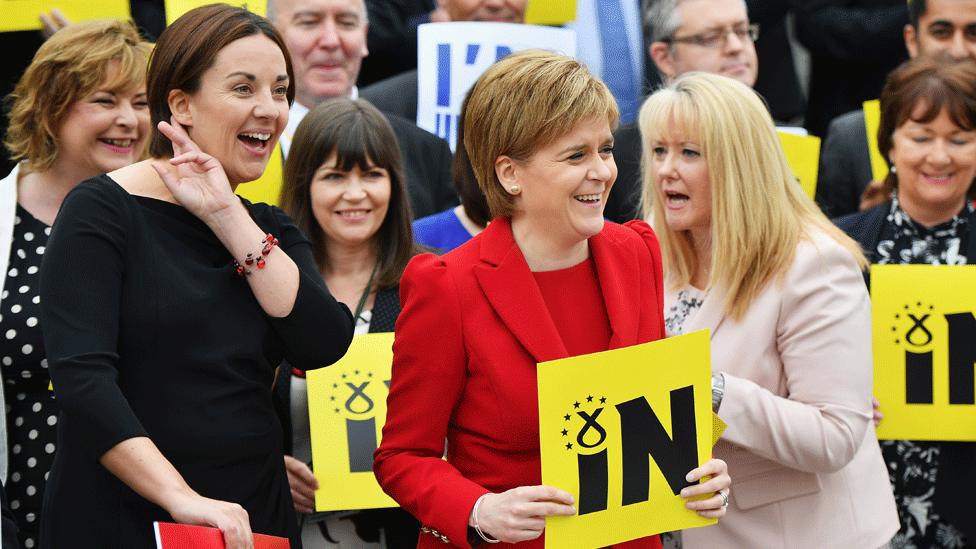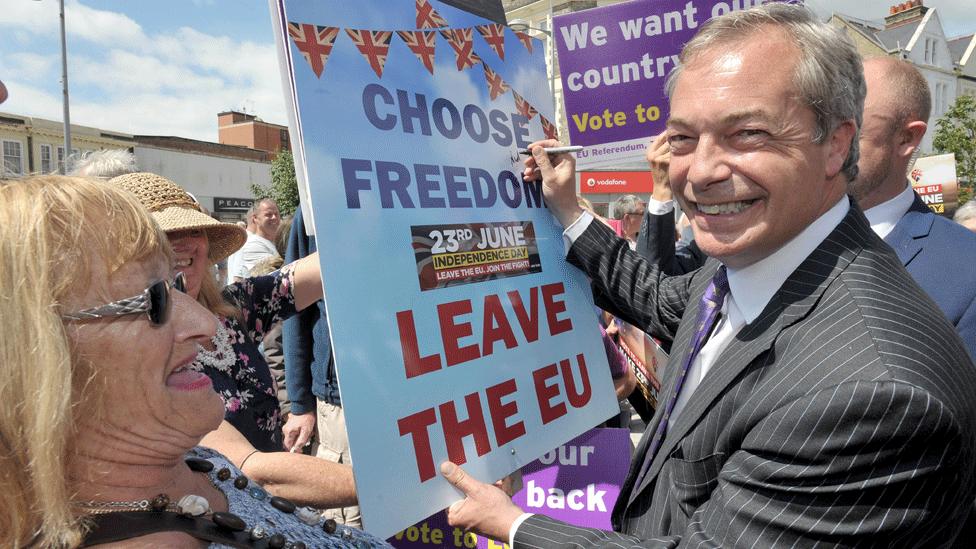EU referendum: Who'll be rushing out to vote?
- Published

According to Nigel Farage, the more avid supporters of Brexit would "crawl over broken glass" to vote to leave the European Union.
As far as I am aware, suffrage qualifications of this nature no longer exist in the UK. Electoral participation involves no particular hazards - other than enduring dusty town halls or schools, with relentlessly cheerful canvassers at the door.
Mr Farage, of course, in his customarily vivid fashion, is drawing attention to two other phenomena. That the preponderance of zeal appears to be on the Leave side - and that differential turnout may affect the outcome.
Now, let me emphasise. There is passion on the Remain side too. That has been particularly evident in the last week or so. But it tends to be caveated - you know, "the EU isn't perfect but….."
For real unalloyed fervour, you have to look to Leave. They yearn for out. In Scotland, the fervent appear fewer in number but they are comparably zealous.
So could that influence the outcome? It could. It is entirely possible that the population as a whole tends towards one result, on balance. But that the supporters of the other side turn out to vote in proportionately greater numbers, producing a different calculation when those votes are counted.
Mr Farage's analysis is that such a phenomenon, if it occurs, is more likely to assist the more zealous side, which he reckons is his own.
With the polls as apparently tight as they are - some signalling Remain, some signalling Leave - the turnout factor could be crucial. Which is why Mr Farage exhorts his troops.

Scotland's FM Nicola Sturgeon, alongside Labour's Kezia Dugdale, is backing the Remain campaign

UKIP leader Nigel Farage is spearheading the vote for Leave
Which is why David Cameron, Gordon Brown, Nicola Sturgeon et al are all today encouraging those who favour the EU to turn out to express that feeling.
In particular, Mr Brown and Ms Sturgeon are appealing directly to sectors of the population. Admittedly, rather large sectors.
Ms Sturgeon says that women's rights - maternity, employment, equality, etc - would be in jeopardy in the event of Leave. Mr Brown, in a speech in Glasgow this evening, will address those who might, generally, have been part of the wider Labour family.
Are you listening?
He will address what he calls the "anxious millions", the economically insecure. On jobs and the economy, he will say "there is no road to the future which does not go through Europe".
Both arguments, naturally, are countered by Leave campaigners who argue that Britain could replicate existing rights underpinned by Europe and, further, that Britain would thrive economically outside the EU.
All these appeals, of course, are to you, the voter. Are you listening? Which side will you heed? And will you turn out to vote?